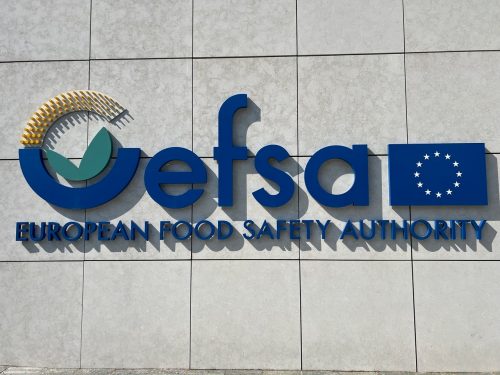
In June 2025, HOLiFOOD partner Dialogik contributed to a three-day seminar on Risk and Crisis Communication at the European Food Safety Authority (EFSA) in Parma, Italy. The seminar was part of the EFSA EU-FORA programme and brought together early-career scientists and risk assessors from across Europe. It was led by Ludger Benighaus and focused on enhancing conceptual understanding, practical skills, and reflexive capacities in the field of food risk communication.
The first day introduced participants to the evolution, principles, and challenges of modern risk and crisis communication, particularly in the context of food safety. Emphasis was placed on how communication has shifted from one-way information delivery to more participatory, dialogue-based approaches. Topics included the importance of trust, transparency, responsiveness, and the adaptation of messages to different audiences – particularly under conditions of stress or crisis. Participants explored how communication can support informed decision-making, public engagement, and legitimacy in risk governance.
To deepen their understanding, participants worked on various applied case studies in small groups, the first one “Asian Hornet” reflected on applied research drawn from HOLiFOOD:
One case study addressed the increasing presence of the invasive Asian hornet (Vespa velutina) in Europe, which poses a threat to honey bee populations and, by extension, to honey production and pollination services. Participants took on the role of a local public authority dealing with concerned citizens and beekeepers reporting hornet sightings. They were tasked with analysing stakeholder perspectives, assessing scientific uncertainties, and developing a strategic risk communication plan over short, medium, and long-term horizons.
The seminar’s theoretical foundation was based on core concepts from risk research. Participants engaged with the three historical phases of risk communication (Leiss, 1996), ranging from the early “information model” to more recent concepts of two-way dialogue and trust-building. They discussed the distinction between hazard and risk, and the relevance of social context, risk perception, and contested knowledge in communication efforts. Frameworks such as “risk governance” (Renn, 2008) and the categorisation of risks as simple, complex, uncertain or ambiguous provided a conceptual basis for understanding how to adapt communication strategies to different types of challenges.
Building on this, the seminar introduced key theoretical contributions from the field of social science risk studies. This included the Social Amplification of Risk Framework (SARF), which explains how media coverage, cultural filters, institutional trust, and interpersonal communication can amplify or attenuate perceived risk. Additionally, participants discussed concepts such as mental models and heuristics, which shape how individuals interpret and respond to risk messages. These perspectives helped to highlight the importance of not only what is communicated, but how and by whom it is conveyed.
Finally, participants explored institutional responsibilities within the broader governance process. Risk communication was discussed not as an isolated activity but as a vital component of risk assessment, management, and stakeholder involvement. The EFSA guidelines served as a practical reference, offering tested strategies for participatory communication, transparency, and adaptive learning in the food safety sector.
Throughout the day, the seminar combined theoretical input, media analysis, group exercises, and discussion. It drew on current EFSA guidelines and research in risk communication and governance, such as the 2017 Risk Communication Guidelines and the 2021 Engagement Toolkit.
This seminar formed part of the HOLiFOOD project’s broader effort to foster evidence-based, transparent, and participatory communication on food-related risks across Europe.